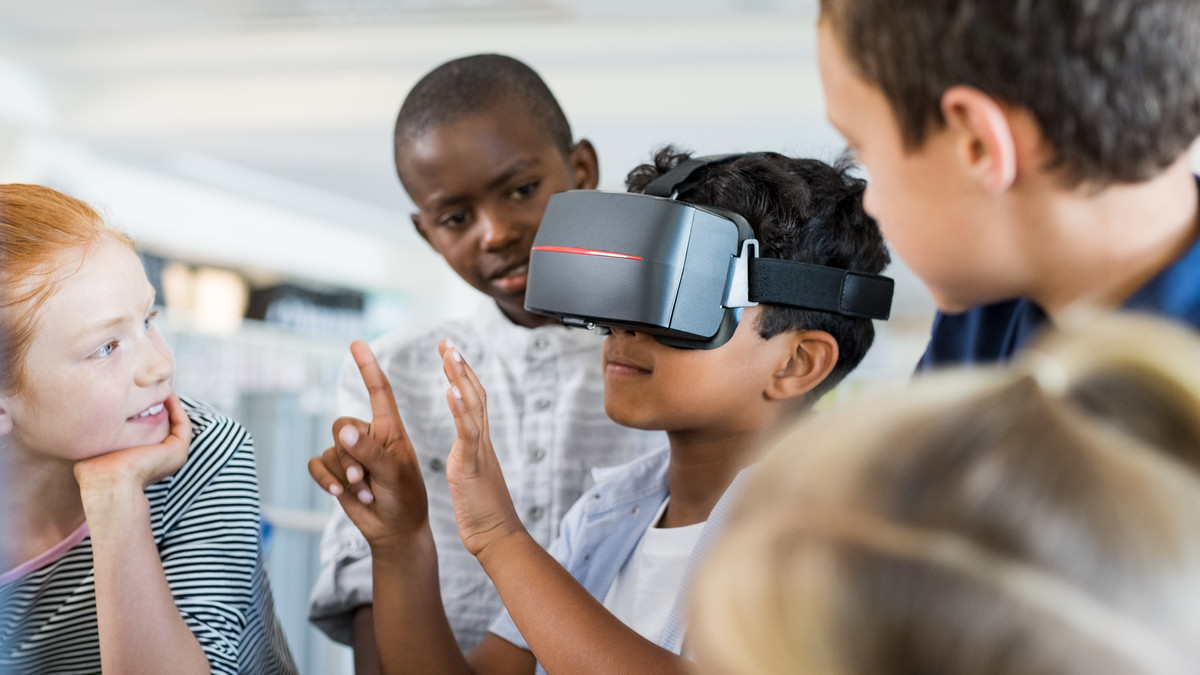A Central Florida company behind a virtual-reality game that teaches students about the chemical elements is in line for a $225,000 grant from the National Science Foundation.
The company, called Not Suspicious, has created the game TableCraft. Its founders expect to learn this month whether they will receive the financial boost as they build out their educational-technology game.
TableCraft is part of a growing trend of products that use VR technology to help teach students about various subjects.
“The work we are doing is important,” said cofounder Rafael Brochado, 27, who said growing up in a bad neighborhood in Portugal sometimes made him consider his personal safety more important than education. “For students who have that problem, they may be in a bad social situation. Sometimes they need a place to be themselves and explore things at their own pace.”
The game requires players to don virtual-reality goggles and deconstruct everyday virtual objects like chalk, salt or toothpaste by guiding them through exercises in which they extract specific elements. Each element then affixes itself on the periodic table of elements.
“If you fail in a game, you can keep trying and, eventually, you can complete a lesson,” he said. “If you fail in the real world, there is a high chance you might have to stay behind.”
Since Brochado started working on TableCraft last summer, it has been received well, having been featured at an education expo during a defense technology conference in Orlando, Fla.
Cofounder Guillaume Bailey, 25, said the accolades have come because the game makes a complex subject simple.
“It’s a very unpretentious concept,” he said. “It’s like a playroom or toy box. It has relatively few ambitions to be more than it is.”
As they worked on TableCraft, Bailey and Brochado, who both earned degrees in game design from Florida Interactive Entertainment Academy at the University of Central Florida, used those connections to find teachers who could help test the game.
That’s where they found eighth-grade science teacher Cady Brewer of Lake Highland Preparatory School in Orlando.
“I love the idea of innovation, and anything you can do to reach kids where they are at is important,” said Brewer, who has taught 11 years at the school. “Right now, VR is where they are at. I’m almost 40, and I didn’t have a cellphone in college. Now, they all have iPads.”
Brewer, who has worked with other game development teams at Florida Interactive Entertainment Academy in the past, helped the TableCraft team develop science content for the game.
“This is a new approach to teaching,” she said. “You need to have a balance of both old and young, a blend of traditional science with the gamification. Part of the innovation comes from that blending and seeing classic concepts like the periodic table done in a more innovative manner.”
While Brochado worked in Portugal’s interactive entertainment industry in 2016, he recognized virtual reality’s potential in education. After he transferred to the University of Central Florida, he met Bailey at a SpaceX rocket launch in December 2017.
